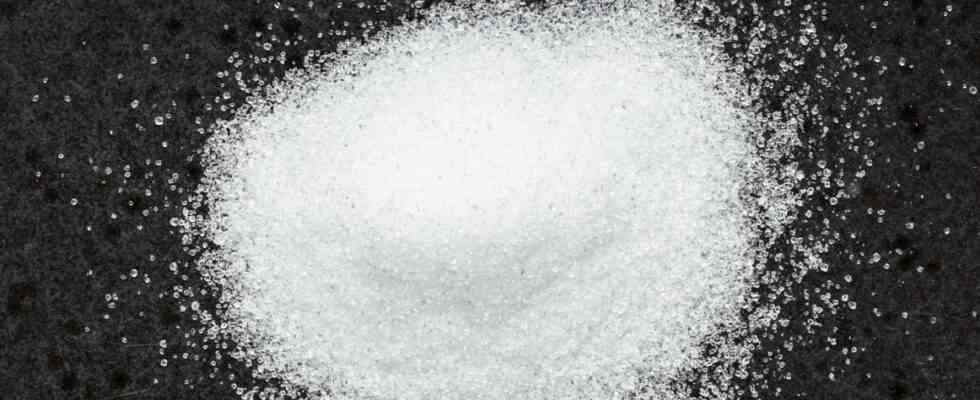Erythritol is actually considered a particularly well-tolerated sugar substitute and is often used in calorie-reduced foods. A study with the participation of the Berlin Charité, the one on Monday in the specialist journal Nature Medicine has been published, now wants to have found a connection between erythritol and an increased risk of cardiovascular disease, as well as increased blood clotting. However, independent scientists consider the study to be of little significance.
The study, led by cardiologist Stanley Hazen of the Cleveland Clinic in Ohio, included blood samples from nearly 1,200 people at increased risk of cardiovascular disease. An increased erythritol value in the blood plasma was measured in test persons who developed a serious cardiovascular complication such as a heart attack within the observation period of three years. Further experiments showed that erythritol leads to accelerated coagulation in laboratory tests.
Scientists who were not involved in the study see it as an important step in drawing attention to the gap in knowledge about sweeteners and their health effects. Nevertheless, they find several weaknesses in the survey.
The main criticism concerns the selected study participants. Since these are not healthy people, but people with an already increased risk of cardiovascular diseases, it is unclear whether the increased erythritol value is the cause of the problems found – or just a side effect of existing diseases.
Because no comparison groups without an increased health risk were included, no conclusions can be drawn about the effect of erythritol on healthy people. Harald Schulze, Professor of Experimental Haemostaseology at the Julius-Maximilians-Universität Würzburg emphasizes: “The results observed here are purely descriptive and correlative.” Because of the study design, erythritol could not be identified as the cause of cardiovascular disease.
In addition, it is unclear in what quantities the study participants consumed the sweetener before the blood was taken. Accordingly, no statement can be made as to the amount of erythritol that would actually have the assumed effects on the cardiovascular system.
Measuring erythritol is difficult: human bodies can produce it themselves to a small extent. Because the European Food Safety Authority has not expressed any health concerns about the sugar alternative, the amount added does not have to be declared.
However, the team around Stanley Hazen was able to show through various tests that erythritol in very high doses actually influences the clotting process. However, Stefan Kaibisch, study doctor in the Clinic for Endocrinology and Metabolic Medicine at the Charité in Berlin, emphasizes: “The dose used in the cell, animal and human experiments of the publication is extremely high compared to the measured levels of the cohorts and thus from most people cannot reach through diet.” It is too early to warn about sugar substitutes, says Kabisch. “Switching back to sugar is probably not the healthier route.” For future research, he suggests comparisons with other widely used sweeteners, such as xylitol.

